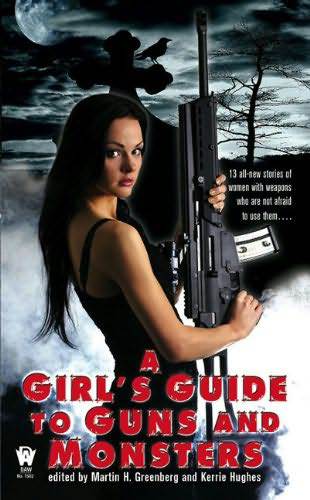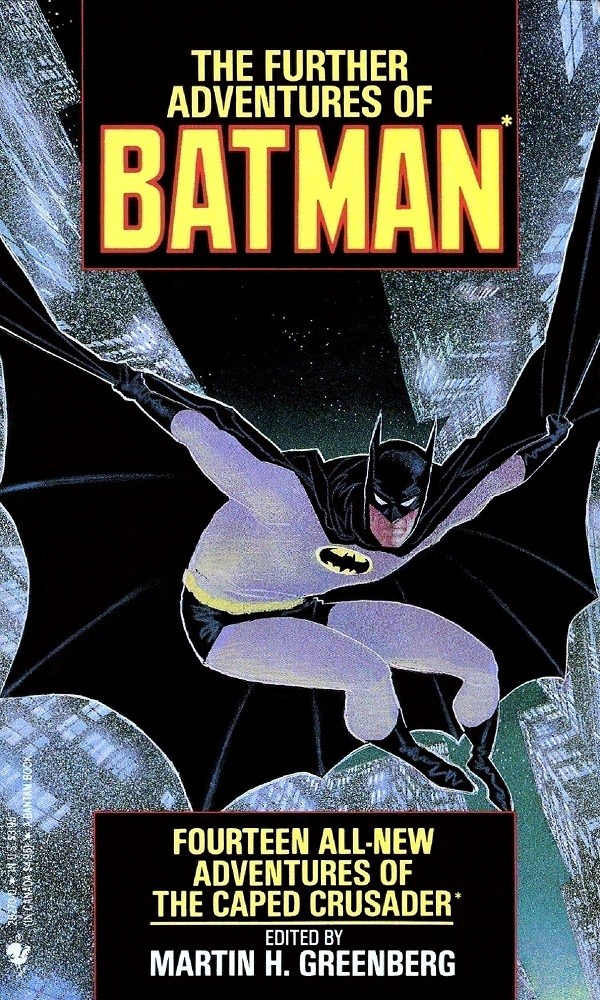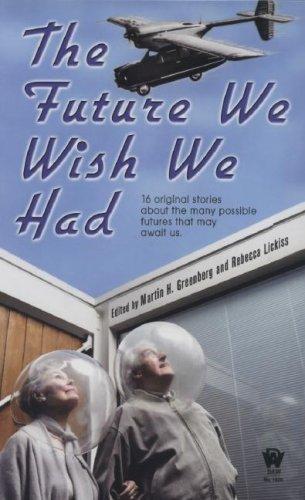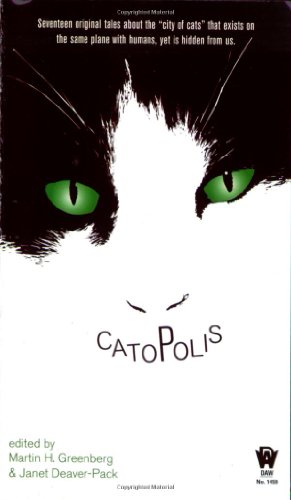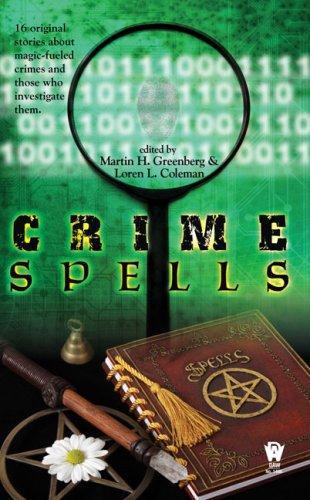oleebook.com
FOUNDATIONS FRIENDS de Greenberg, Martin H
de Greenberg, Martin H - Género: English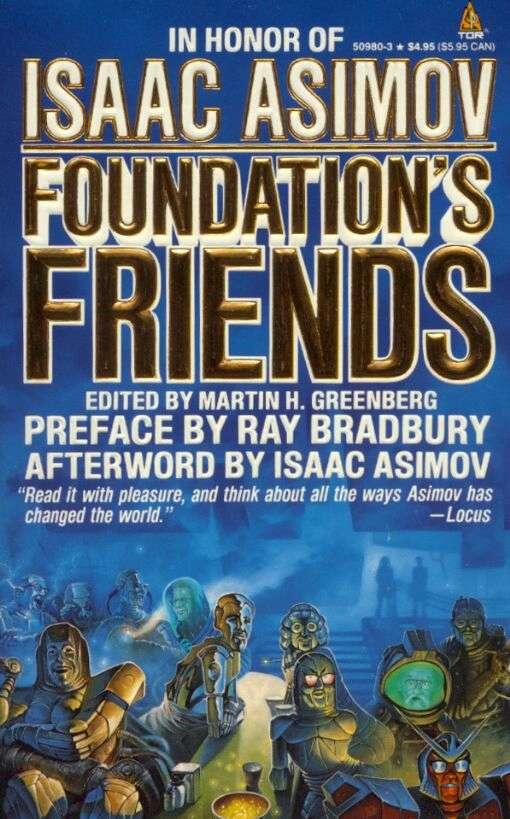
Sinopsis
SUMMARY: A festival of original science fiction honoring Isaac Asimov's 50th anniversary in the genre, this anthology offers a tribute to Asimov's long and esteemed career, as well as his valuable influence both in the field and outside it. Contributors include Poul Anderson, Orson Scott Card, Frederik Pohl, and Robert Silverberg.
Libros Recomendados - Relacionados
Reseñas Varias sobre este libro
Robots request that Dr. Asimov remove the Three Laws of Robotics
A delegation of robots
WE WANT TO SEE DR. ASIMOV, THE BLUISH-SILVER ROBOT said.
Dr. Asimov is in conference, Susan said. Youll have to make an appointment. She turned to the computer and called up the calendar.
I knew we should have called first, the varnished robot said to the white one. Dr. Asimov is the most famous author of the twentieth century and now the twenty-first, and as such he must be terribly busy.
Before the story ends we find the answer to What could be stronger than the First Law?
Enjoy!
humour recently-reviewed science-fiction12 s Titus Fortner1,131 17
There are 17 short stories:
These stories come in 3, roughly evenly split groups:
1) Stories that didn't even try to reference Asimov or the Foundation universe, and might as well have been in any random book of SciFi short stories. I didn't care for any of these
2) Stories that referenced Asimov or were set in the Foundation universe, but I just didn't .
3) Stories that were set in the Foundation universe and were enjoyable. Not all of these were crafted equally well, and none were particular standouts, but each told an interesting story that I felt added to the Foundation Universe more than it detracted.
My favorites:
Pamela Sargent - Strip-Runner
Harry Turtledove - Trantor Falls
Mike Resnick - Balance
Plato's Cave - Poul Anderson
Foundation's Conscience - George Zebrowski
The Originist - Orson Scott Cardscience-fiction5 s Joan2,113
This festschrift proves that Asimov stands so far above most other writers as to inhabit another plane of existence. Very few of these stories were any good. I found "Strip-runner" by Pamela Sargent very good."Trantor Falls" by Harry Turtledove, "Plato's Cave" by Poul Anderson, and "Reunion at the Mile-High" by Frederick Pohl were also good. Contrary to what others have stated, I found Orson Scott Card's story pretty poor. It dragged on and on hammering the same points. I just finished the story a few minutes before starting this review and I had to refresh my memory as to the characters' names. I haven't d what I have heard about Card, and now I am certainly not going to try his books. It wasn't necessarily worse than other titles in this book but because his fame is so great, I expected more than some of the other writers. Dilemma by Connie Wills was excellent! I'll have to look up her books.
I give the writers here credit for wanting to participate in honoring Asimov. But a lot of the writing was simply poor. I think this volume shows that no one has taken Asimov's place in the Science Fiction genre, or ever will. Asimov has a quick chapter at the end thanking people for doing this for him. As brief as it was and certainly not excellent writing....basically a long thank you note...it was better writing than some of the stories in here. adult-books fiction read-in-2017 ...more4 s Estevam (Impish Reviews)194 18
Dnf 40%, might comeback to read when i more acquainted with asimov's work. But for what i read there were some very good ones i d the one where the robots wanted asimov to revoke the first law of robotics that one was brilliant, there was one that was pretty bad, in i didnt the way it was narrated, the one with the maureen character, the other ones were different shades of good to okay.4 s Santosh Bhat255
This is a collection of short stories written by some of the best authors in the science fiction genre, to commemorate 50 years of Isaac Asimov's writings.
The tales are mostly set in his Robots - Foundation universe, with a few others with his lesser known mystery and other sci-fi characters.
The stories here are of a hit-and-miss variety, with the best one being "The Originist"by Orson Scott Card, which details the formation of the Second Foundation.ebook2 s Jon M131 3
Some great stories, some mediocre ones. If you enjoyed the Foundation series and Orson Scott Card's novels, his 60-page story in here is a must-read.2 s Xabi19902,017 1,077
7/10 en 2008.
Como casi todos los libros de relatos cortos tiene alguno bueno y muchos flojos.
En este caso 17 autores -la mayoría muy buenos- parieron algún relato en el 89 para este recopilatorio que hicieron con motivo del 40 aniversario de la salida de Segunda Fundación (de Asimov, obvio), título con el que se cerraba la saga.
En realidad los relatos van de cualquier tema que tocase Asimov y a la traductora hay que pegarla un tiro. Tengo el libro y al leer "Federaciones" (en vez de "Fundaciones") la asesiné mentalmente. jajaja, es de lo que más me acuerdo del libro.
Prescindible, vamos (mi "7" es más por nostalgia que por otra cosa)1 Jay252 9
A couple of years ago I embarked on reading all of the books Asimov wrote that took place in his Foundation milieu, starting with The End of Eternity and progressing through the Robot novels, the Galactic Empire trilogy, and all the Foundation books, in story order. It was an incredibly satisfying experience to see how these stories evolved and built on one another, even though (or especially because) Asimov wrote them very much out of order. It really highlighted his vision for a future history and his amazing ability to pick a period almost at random out of that history and create a story that fit neatly into the timeline.
(For those interested there is a wonderful timeline at this website that I used to help guide the order in which I read the books: http://www3.sympatico.ca/n.rieck/link...)
After taking a little break, I decided to then go through the "successor" books of the Foundation universe written by people other than Asimov. I found a list somewhere (can't recall where now) and ordered all the books that it contained, and the first in the list was this one, Foundation's Friends.
I admit I was a little disappointed at first to discover that this was just a collection of short stories by other SF authors who wrote these tales, published in 1989, to commemorate the 50th anniversary of Asimov's entry into SF writing with his first story in 1939. That disappointment was mostly dispelled as I got into the book, though.
Some of the stories in this collection are not recognizably set in Asimov's Foundation timeline; and they are written by lesser-known authors, so they are my least favorites. But as a rule, the more famous the author, the better the story and the better the fit within the Foundation milieu. Pamela Sargent's Strip Runner takes the reader back to the bubble city of Lije Baley's time with its people-conveying belts so reminiscent of Heinlein's The Roads Must Roll. Edward Wellen's Murder in the Urth Degree is a great crossover story to Asimov's Mysteries book (1968), four of which featured extra-terrologist Wendell Urth.
Harry Turtledove, best known for his alternative history novels, contributed Trantor Falls, which takes place at the beginning of the breakdown of the Galactic Empire predicted by Hari Seldon. Balance by Mike Resnick takes us back to the original Robot novels and features robot psychologist Susan Calvin. So does the story by my favorite SF writer of all time, Poul Anderson, who penned Plato's Cave to include not only Calvin but robot troubleshooters Gregory Powell and Michael Donovan. His story is written in quintessential Anderson style but is perfectly consistent with the Donovan and Powell stories from I, Robot, and is an absolute delight. wise the great Harry Harrison--author of the classic Stainless Steel Rat and Deathworld series--features a mature Greg Donovan and Calvin's great-niece in his whimsical The Fourth Law of Robotcs, which features a special guest appearance I won't spoil.
The final story in the series, and the longest, is The Originist by Orson Scott Card and it's everything you'd expect from a writer of his magnificent talent. Set in the final days of Seldon's life, it gives a glimpse into the mysterious origins of the Second Foundation and is the story that made me give this whole collection 4 stars instead of just 3. It's a brilliant piece that is a very fitting addition to the Foundation canon.
There are a number of other stories in the collection, but most of them were far enough out of the Foundation setting that they left me kind of cold. (In particular, Hal Clement's Blot seems to imply the existence of non-human intelligence in the universe, which is at odds with the whole premise of the Foundation series. I'm kind of surprised this one got past the editors, though as a standalone SF story it's not bad at all.) One exception was The Reunion at the Mile High by Frederick Pohl, which recounts a fictional reunion of Asimov, Pohl, and other writers who in the real world of the 1930s through 1960s would come to define the Golden Age of science fiction. It's a tongue-in-cheek alternate-history tale but makes the reader realize how improbable and special was the origin of so many beloved SF writers in the same time and place: New York of the late 1930s.
As a collection of SF stories, this one is kind of hit and miss. As an homage to Asimov and his seminal work, most of the stories are wonderful offerings to be laid at the feet of the master.
(I have since found an updated list on Wikipedia that includes all the canonical Asimov Foundation novels, plus the contributions by other authors that I was going off of, and adds a number of newer books I was not aware of, which I will now order and read: https://en.wikipedia.org/wiki/Foundat...)1 Anthony BuckAuthor 3 books9
A collection of mostly very good short stories, some of which held a nostalgic charm for foundation fans me. There was nothing in here that truly blew my mind, thus I think there are better short story collections out there. But this is a pretty good one.1 Patrick Brettell72 1 follower
BLUF: As with any collection of short stories, my rating for this is the weighted average of the individual stories. This had a few great stories, some real clunkers, and a couple in between.
I know Ive read this collection before, but the greatest specificity I can give regarding when is about two decades ago, so most of the stories were unremembered in any detail.
Strip Runner by Pamela Sargent: **** This was good enough that I looked up the authorunknown to me on readingand added the first book of her most prominent trilogy to my to-be-read list. I remembered this story, but not in detail. The author does a good job of imitating Asimovs mid-(20th)-century America gender roles but, un Asimov, shes aware of and commenting on the dynamic rather than just replicating the world around her. The story has an optimistic arc with the main character going from looking at a dead-end future on a confined world to an optimistic outlook with, hopefully, galactic limits.
The Asenion Solution by Robert Silverberg: *** Either I was mis-recalling this story, or this story is an homage to a similar story from Asimov. In the story I thought I remembered, its a different product being transferred over from a parallel universe, and the solution involves sending them in the opposite, er, direction as in this story.
Murder in the Urth Degree by Edward Wellen: ** The humor, as well as the solution to the sort-of mystery, is all based on word play and two literary references, neither of which I have any interest in. The overall writing is good enough that I wouldnt turn down a Wellen book out of hand, though.
Trantor Falls by Harry Turtledove: ***** This is the story that I wanted to re-read the collection for, and it didnt disappoint. I love seeing more details of Galactic Empire historyfar more interesting than anything in the Foundation-proper, to me. Ive read other Turtledove before and usually enjoyed it but found that it started to drag after a while, so his short story work might be just the thing for me.
Dilemma by Connie Willis: *** A cute little story full of references to Asimovs work (which I suspect the author thought was the purpose of the anthology). The mystery is mostly solvable with about one-third of the story to go without an extensive knowledge of Asimovs bibliography.
Maureen Birnbaum After Dark by George Alec Effinger: * Inspired by an Asimov story Ive heard about but never read. The narrating character is a late 20th century woman who gets hurled into various existing science fiction and fantasy settings. I looked it up and apparently the author started by hurling him into his own settings but transitioned into dropping her into existing ones at the authors requests. I found the manner of narration so grating that I cant see myself looking for more of it.
Balance by Mike Resnick: ** Beats up on Susan Calvins physical appearance and self-esteem far more than any Asimov story I remember (though its been a long time since I read one of his stories with Susan Calvin). Also, so boring that I completely forgot about it literally a few hours later when I was trying to recall which stories Id just read. Possibly the shortest story of the collection but still with more fluff than most of them.
The Present Eternal by Barry N. Malzberg: ** I have no idea what Asimov story this is a reference to. There are two central threads and one has no conclusionpossibly intentionally given the topic, but still unsatisfying.
PAPPI by Sheila Finch: *** An interesting enough story, and I remember the Asimov story to which its a reference. But the ending is disappointing, and the main character overlooks an obvious potential to his problems. (Also, no mention of any problems for the infant/toddler daughter born on the Moon and spending her first time in Earths gravity?)
The Reunion at the Mile High by Frederick Pohl: *** A vague alternative history thats literally a celebration of Asimov and a group of his friends. I get that the point of the collection was honoring Asimov, but it was a bit much. Also, did people really used to refer to science fiction as stf?
Platos Cave by Poul Anderson: **** Very much in the vein of an Asimov robot story: A robot isnt behaving as expected/intended, and the human actors have to figure out how to use the robots own logic to fix that. I could believe Asimov wrote it, and since my interest in this collection is seeing expansions to Asimovs universe, thats a good thing.
Foundations Conscience by George Zebrowski: ** This read very much to me someone racing to complete a homework assignment and substituting superficial profundity for the minimum length requirement.
Carhunters of the Concrete Prairie by Robert Sheckley: ** This was a little too pulpy and humor-focusedand the humor doesnt hold upfor me.
The Overheard Conversation by Edward D. Hoch: *** I remember reading the Black Widower mysteries by Asimov but only clearly remember one (the -40 degrees one). I probably read this one before because I knew the answer the second I read the mystery (or maybe these were just tougher for my young self), but this was very close to the character of the stories as written by Asimov.
Blot by Hal Clement: ** Started out promising, but the descriptions of the movement and setting are confusing; several times, I even thought maybe the reveal was going to be that the characters were shrunken because they kept referring to cliffs rising up ten centimeters. The ending is just baffling. The characters conclude that theyve encountered extraterrestrial intelligence whose robots avoided harming certain among them after deciding they were human because the First Law prevents a robot from harming humans. Why would robots created by extraterrestrials be bound by the Three Laws of Robotics, and, if bound by something similar, why would they be intended to protect humans?
The Fourth Law of Robotics by Harry Harrison: ** Im pretty sure this was intentionally bad writing, but I cant figure out to what end. Its full of purple prose and statements , I heard the sounds of [x] instead of just I heard [x].
The Originist by Orson Scott Card: **** A great addition to the Foundation timeline, although the genius of and need for the main character is a little hand-wavey. The best part, for me, is the revelation of why the Empire needed to pullback from the Periphery at the beginning of the original stories.
Laura L. Van DamAuthor 2 books147
Interesante relato que transcurre en el universo de la Fundación de Isaac Asimov y publicado en una antología en honor de este autor. Me quedé con la sensación de que me perdí de algo porque no leí la saga de la Fundación completa y lo poco que leí es un recuerdo lejano.
La Biblioteca Galáctica de Trantor me recordó mucho al planeta Biblioteca que apareció en dos capítulos famosos de Doctor Who.audiobook science-fiction short-stories1 Mina1,037 124
Quick points:
- do people need to have previous knowledge of Asimov to enjoy it? Only for the bad ones, which are not that many.
- is this as science heavy as some of Asimov's works? No. Anyone can read and enjoy it.
- should new SF readers pick this up? Only if they're feeling tolerant. There are many other books that make better entries to SF (Asimov's I, Robot or The Early Asimov: Volume 1, or Volume 2) who are richer in worldbuilding or in plot or character development or all of the above.
The cover of my volume is giving me Egyptian temple vibes, which is cool for at least two points:
- The Stargate show is probably the main force is aligning Ancient Egyptian culture with SF, although not with robots.
- The cover design has robots stand as gods in front of temples. The very close overlapping of these two concepts is very very cool, because Ancient Egyptians had this very intricate mythology about the afterlife, while the triangle looks a window to a very intricate futuristic world (that of Asimov, I assume).
I really this cover. If they would have shown the faces in more detail and reduced that useless shadow that looks it's made in a studio, it would have been chef's kiss perfect.
Ok, let's get to the book itself:
I'm starting to think there's a pattern with anthologies - one I can only call 'the editor held hostage'. I can only assume it's due to the fact that the editor doesn't have as much sway over a heard of authors as he or she does over one novel author. Anthologies are a box of chocolates: there are all types in, and sometimes even marzipan (agree to disagree, marzipan is a waste of almonds), but short stories from multiple authors are such a waste of chocolate. Even the highlights read fanfiction or, well, have lax writing.
Of these highlights:
1.Strip-Runner by Pamela Sargent - 3/5 - strip-running is similar to parkour, for those unfamiliar with The Caves of Steel , and this story give homage to that book, although readers unfamiliar to Asimov don't need to have read it. It is a very self-contained character-driven story. This was interesting for examining the ordinary lives of people living in the fabulously creative worlds Asimov built. It dealt with teams of safety versus exploring one's potential, or identity in an increasingly planned society, with familial love versus coming of age. It was surprisingly well-written, if a bit bleak throughout except the ending. There are strong currents examining the female experience before-say- the World Wars
2.Present Eternal by Barry N. Malzberg -a low 3/5 - a device that can allow people to see anything, anywhere, at any point in the present or in the past results in the collapse of society. Good concept, but lazy execution
3.The Originist by Orson Scott Card - 4/5 - At 99 pages, this is a fifth of the whole book, and that is including the first and second preface and Asimov's and his wife's closing words. This story is over a quarter the length of all the 16 other stories put together! See what I meant about a captive editor?
This is a story set on Trantor taking place sometime spanning the timeline of the end of Forward the Foundation and the beginning of the first Foundation story. It brings up very good concepts about how culture is spread through stories and how the least sophisticated culture of children and nursery rhymes endures through time and space while the most sophisticated culture of marriage lives and dies with every couple. I'll give the author self-awareness kudos for recognising that his character is proselytising. Very good ideas, but tighter writing, heavens. Having skimmed this and I still itch to get a pen or a chainsaw and chop this by 50% and add a bit more 'show don't tell'.
Of the genuinely crappy ones, there's Balance by one Mike Resnick, which is a guy shoehorning a really awkward fantasy in the head of Susan Calvin (of I, Robot) while she's giving a speech. Two people fantasizing about each other and never acting on it. That's all. If they were two generic character it would be about as empty as it is when one is a pre-existing character that Asimov fleshed about. Dilemma by Connie Willis is not that far ahead, but at least there's some mystery, even if the conclusion is quite dumb.
For Foundation fans, there's Trantor Falls by one Harry Turtledove, which is about how Trantor is overtaken by barbarians. There's very little context, but it's pleasant enough, in the fanfiction way, but it does not have what might be called 'original plot'. It's mostly filling in the colors within the lines.
It's worth picking up, but un Asimov's short story collections, this one will ly seldom get a reread.
Closing thoughts:
This has probably sat on my currently reading shelf the longest probably before I was on Goodreads (someone lost my paperback after story 1). I'm glad I picked it out again.anthology sf social Jeremiah Johnson338 1 follower
Most of the stories in this collection are utter garbage. There are a couple that were decent enough to push this to two stars, but they weren't good enough to recommend this book to anybody. If you're going through the Foundation Universe, stick to Asimov's work and avoid anyone else's the plague.1 ?? Sarah ?? (former Nefarious Breeder of Murderous Crustaceans)2,413 7,676
This was a fun read but I think those who are familiar with Asimov and his books will find this short novel more enjoyable than I did. Still, this is a typical, entertaining Connie Willis read.2013 fantasy short-stories-novellas1 Carina1,494 1 follower
Overall I really enjoyed this anthology. I knew from reading Asimov's auto-biography that he had helped curate a number of short stories into collections and since then I have always wanted to read one. I'm not sure this strictly counts as the stories were written for a 50th anniversary book for him, but it gives me a flavour of what I could expect.
Now, some of these stories are ... not my cup of tea. I don't think they have aged well, and honestly were I reading at the time I doubt I'd have thought much of them then. But for the most part these stories were really good and were due ratings of 4 or 5 stars themselves. For once I actually used the notes when updating my GR reading status so I have copied below my thoughts on a number of the stories:
--
I LOVE Strip-Runner so much. Set just after The Naked Sun this gives us a view of the City that ties in so well to Asimov's own. Pamela Sargent has done a great job at making this seem part of the Robot series itself - I d the cameo by Lije, and the disdain for the robots shown by Amy just feels so true to the overall series. As a short story 5/5 stars.
Trantor Falls. It wasn't until the end of this story that I worked out where it fit into Asimov's larger universe but I had my suspicions. I think this is a story where you need to have read the Foundation trilogy to understand what a good story this is. I really wish I had read the trilogy recently (I have it to hand just not re-read it yet) as I think it would be even more interesting with more recent knowledge.
Dilemma. This short story screams Asimov to me. It's written in his style and the parts in which he appears sounds he does in his biography. Connie Willis has done a great job at preserving the feel of an Asimov story. I really d the call backs to his other works - in that way it reminded me a little of Caves of Steel - I was solving the mystery as to the robots request as Asimov was. Another 5/5 story
Foundation's Conscience. It's been a few years since I read the Foundation sequels so I can't recall if it was certain that a decision made in the second sequel actually was made... but this certainly seems to suggest that the universe as one interconnected being did proceed... This book was published in 1989, 3 years after Foundation and Earth so it seems we've been given an answer!
Carhunters of the Concrete Prairie. 5/5. I really d this story, well written and intriguing. It doesn't necessarily fit into Asimov's universes but you can see it as sitting in a slight AU - arguably one of Asimov's books does - the one with the time travel or whatever.
A lot of other reviewers commented that Orson Scott Card's story, which ends the collection, was the best story. It's certainly the longest and I have gone straight from reading that to reading Janet and Isaac's own contributions to the book. I have never read anything by Orson Scott Card before but based on this I need to. As with *so* many of the other stories contained here, The Originist just fits in with Asimov's Foundation universe so so well. In itself another 5/5 story.
--
I know that I prefer Asimov's Robot stories compared to Foundation and so it's interesting that I am split between the Foundation-esque and Robot-esque stories here. I thought the robots would come out the clear winners but maybe I can now better appreciate the political moves that the Foundation stories entail?
I think if I were to re-read this book I might skip a few of the stories (the woman after dark or in the dark one comes screaming to mind as something never to read again), but I think I would re-read maybe 80% of the book. It's certainly introduced me to a few more SF authors to try!2020-reading-challenge science-fiction Ande Ande AndeAuthor 1 book19
"Asumi sõbrad" on suunatud eelkõige Isaac Asimovi sõpradele - neile, kes on ulme suurmeistri lugudega juba varasemalt tuttavad.
Raamat koosneb kolmest osast.
Esiteks erinevate autorite lühijutud, mis on mingit otsapidi seotud Asimovi loodud maailmade või tegelastega.
Mida paremini lugeja Asimovi teostega kursis on, seda rohkem need lood ilmselt pakuvad. Kuigi olen ise üsna palju Asimovit lugenud, oli kogumikus ka neid lugusid, mida ei osanud mingi kindla teosega seostada. Ega siin ei ole ka midagi imestada - Asimov oli erakordselt viljakas autor ning ka eesti keeles ei ole kaugeltki kõike ilmunud.
Muidugi on lood loetavad ka eraldiseisvatena, aga teades tagapõhja, on nad kindlasti mõjusamad.
Lood olid väga eriilmelised, nagu ühelt healt kogumikult oodata võikski. Oli neid, mis mulle väga meeldisid ja ka neid, mis mind võrdlemisi külmaks jätsid. Aga see ongi hea - maitseid on mitmeid ja tegelikult on vahva lugeda, kuidas Asimov erinevaid inimesi inspireerinud on.
Teiseks olid kogumikus kolm Asimovi enda lemmikjuttu. Kahtlemata suurepärased lood (minu lemmikuks neist "Inetu poisike"), aga pelgalt nende pärast ei tasu kogumikku kätte võtta. Eesti keeleski on ilmunud teisigi Asimovi kogumikke, näiteks "Kadunud Robot" või "Üheksa homset". Viimases on kusjuures samuti olemas ka "Inetu poisike" ning seal olen selle oma paremusjärjestuses asetanud neljandaks.
Viimaseks olid erinevad järelhüüded ja meenutused Asimovist. Taaskord eriilmelised ja huvitavad - aga ilmselt siiski vaid siis, kui oled juba Asimoviga sõbraks saanud.
Üheseõnaga - Asumi sõpradele julgen kindlasti soovitada; kes aga tema teostega niivõrd hästi kursis ei ole, võiks haarata pigem mõne teise kogumiku või romaani järele. Alex Shrugged2,387 26
I generally don't short story collections as much as novellas and novels. I d this collection. I didn't love it, because it seemed, at times, a love-fest on behalf of Isaac Asimov. It got a little drippy at times, but the actual stories about the Foundation are straight stories.
This is a series of short stories written by various science fiction authors in honor of Isaac Asimov's 50 year writing career. Only a few of stories are related directly to the Foundation series such as "Trantor Falls", "Foundation's Conscience" and "The Originist". Others are related to the Robot series such as "Strip-Runner", "Dilemma", "Pappi" and "Plato's Cave" and others. There is also a murder mystery, a time-viewing story, a tribute to "Nightfall" and an alternate history story.
Any problems with the book? A number of stories seemed to be direct tributes to Asimov that were more insider jokes than real stories. I felt a newbie sitting at a table of old friends telling stories that only the friends themselves could understand. "Remember the time when our publishers told us to show up for that event?" "Yeah... I remember. The reporters were all over Asimov and all the reporters asked us about was how we knew Asimov! We laughed about it all night." That sort of thing. Only Asimov would get the full impact of the story.
Any modesty issues? No vulgar language was used that I recall. Sex happened in some of the stories, but it was vague such as "They found a use for the plush carpet." In the story "Pappi" there was a vague suggestion that Karin and Dr. Susan Calvin had something closer than a working relationship. Then in the story "Balance" Dr. Calvin seemed to have the hots for a guy that was tracking her every move and listening to every word she spoke. But in both stories her sexuality was only implied... really, really vaguely.
I doubt I will ready this entire book again. I might read individual stories again such as all the Foundation stories I listed above. Of the Robot stories I especially d "Strip-Runner" and "Plato's Cave".reviewed-books science-fiction short-stories Paul,826 92
Obviously, as a compilation, quality was mixed. But Asimov created such a rich world that all of the author's had a lot to explore. I especially d the piece by Orson Scott Card.
Here are a few of my favorite quotes:
Communities that make few or no demands on their members cannot command allegiance. All else being equal, members who feel most needed have the strongest allegiance.
You memorized that?
Psychohistory is the psychology of populations, but populations can only be quantified as communities. Seldons work on statistical probabilities only worked to predict the future within a generation or two until you first published your community theories. Thats because statistics cant deal with cause and effect. Stats tell you whats happening, never why, never the result. Within a generation or two, the present statistics evaporate, theyre meaningless, you have whole new populations with new configurations. Your community theory gave us a way of predicting which communities would survive, which would grow, which would fade. A way of looking across long stretches of time and space.
Our own lives are nonsense, but we impose a story on them, we sort our memories into cause-and-effect chains, forcing them to make sense even though they dont. Then we take the sum of our stories and call it our self. This poem shows us the process-from randomness to meaning-and then we think our meanings are true.
Milky P. Cawai85 2
??????????????????????/???????????????????????????? ?????????????????????????????
17???????????????????? ????????????????? ???????????????????????? ????????6??????
?????????????/?????? ??????
?????????????????????????????????????????????????????????????????
???????/????? ?????
??????????????????????????????????????????????????????? ????????????
?????????????????????????/????? ??????????
????????????????6??????? ?????? ?????????????????????????????????????????????????????????????? ??????????????????????????????????????????????????????
???????????????????????/???????? ????????
????????????????????????????????????????????????????????????????????
??????????????????????/??????? ?????????
???????????????????????????????????????????????????????????????????????
????????????/??????? ??????? ?????
????????????????????????????? ?????????????????????????????????????? ???????????????????????????????????? ????????????????????????????????
?????????????????????????????????????????????????????????????????????????????????????????? ?????This entire review has been hidden because of spoilers.Show full review Guamu20 2
Como en cualquier compilación de cuentos, hay algunos que son excelentes y otros que, francamente, son malos. El tono y temática de los relatos varía bastante de autor en autor y hay varios que no parecen tener nada de relación con Asimov o sus mundos. Podrían ser relatos cualquiera de SF.
En especial valen la pena el relato con el que abre el libro de la corredora de cintas (de Pamela Sargent) sobre unos revoltosos juveniles en la tierra de Las bóvedas de acero y otro llamado Balance (de Mike Resnick) sobre un encuentro de un joven con Susan Calvin.
George Kasnic499 1 follower
A fitting homage to an icon of science fiction. The stories range in scope, perspective, and intent about the universe Asimov created with the Foundation series. Visiting unexplored parts of Trantor, obscure worlds on the Galactic Rim, toying with the Laws of Robotics, it is all here in celebration of their creator and soul.
In the end this is fan fiction, but what a lineup of fans. Silverberg, Bova, Card, Poul, Anderson, Willis, Harrison, giants in their own right, all bending their efforts towards expanding this reality. A foreword by Bradbury is complemented by the editing of Greenberg the true master of such anthologies.
If you havent read it, I dont know whats stopping you. Come take a trip with me to worlds wonderful and tantalizing, you will be ecstatic that you did. SaraKat1,746 34
Some science fiction authors collaborated and wrote some stories that are set in Asimov's Foundation universe. Some of them were really good and it seemed a natural extension of the novels! There were also several lovely anecdotes and memories of Asimov's generous nature that were real tearjerkers. Rebecca Heywood612 5
This took me awhile to finish because I to have a bit of time in between stories and these were a collection of stories. It reminded me of how much I love Isaac Asimov stories and to remember how ingenious his ideas were. I highly suggest reading at least his short story the Last Question. It is quite a phenomenal story and shows how his brain really works. Clayton Barr50
This is a book of short stories by writer friends of Asimov, set in his universes or inspired by his oeuvre...and most of these stories are pretty poor. Many of them, I think, are trying to be humorous, but just left me wondering the point. For Asimov completists only. Aaron R Mathews2 1 follower
These are some nice extra stories in the same universe as Foundation/Robots; varying in quality but I enjoyed most of it and any more Foundation stories are welcome as far as Im concerned. Sue61 1 follower
Some great stories in here.
2019 D253
2,5
Some stories were good, most was not good at all._anthology sci-fi Guillermo Ortega6 Read
Autores diversos se ciencia ficción aprovechan el universo creado por Isaac Asimov para explorarlo y desarrollar "auténticas" historias isamovianas que no podrás distinguir de las verdaderas. Muy entretenido, algunas son extraordinarias. Zoltán171 4
Rögtön egy vallomással kell kezdenem: a kötetb?l mindössze az Alapítvány-univerzumhoz (többé-kevésbé) kapcsolódó három novellát olvastam el. Közös jellemz?jük, hogy Asimov mímelése helyett a történeti mellékvágányokat mindhárom szerz? bizonyos lélektanilag sem elhanyagolható eszmefuttatások kibontására használta fel.
Orson Scott Card, The Originist (magyarul általában Az eredetkutató címen hivatkoznak rá) cím? írása az emberi párkapcsolatok helyt?l és kortól független univerzáléira összpontosít, miközben végig megmarad az asimovi kereteken belül.
A Trantor Falls (Trantor eleste) Harry Turtledove tollából egy lényeges epizód részletesebb taglalásával illeszkedik az Alapítvány sagába. A trantori egyetemen zajló eseményeknek mindazonáltal létezik egy olyan másodolvasata is, mely kellemes elégétel mindazon olvasók számára, akik a tudást és m?veltséget még a leghálátlanabb történeti viszonyok közepette is az elállatiasodott viselkedés fölébe helyezik.
George Zebrowski olyan kérdéseket feszeget a Foundation's Conscience (Az alapítvány értelme) c. novellájában, melyek alapvet? jelent?ség?ek ugyan az Alapítvány-univerzum számára, ám jóval túlmutatnak a pszichohistória határain, elvégre az emberi történelem alakulása/alakítása, a teremt? intelligencia és szabad akarat kölcsönös viszonyának megértése az évszázadok folyamán nagy gondolkodók tucatjait kergette már az ?rületbe.fiction-non-hungarian Victor GibsonAuthor 5 books5
Autor del comentario:
=================================
